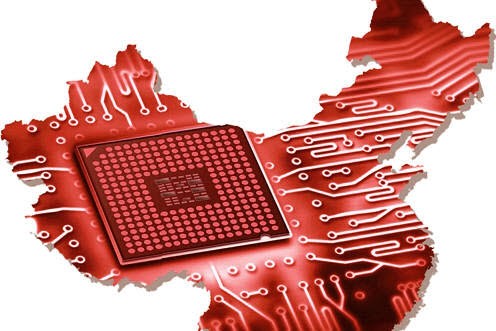Requests to show 'certificate of origin' in the contract
Possible reorganization of foundry supply chain
An opportunity for Korea’s fabless with low proportion of mass production in China

US semiconductor customers seem to refuse products from China. The customers are demanding a 'certificate of origin' that it was not manufactured by a Chinese foundry even if it was designed by a Korean semiconductor fabless. It is a move to minimize the damage caused by the US government sanctions. It will affect the semiconductor production supply chain due it being a ‘De-Sinicization foundry’.
Company A, a domestic power semiconductor company, recently received a request from a US customer to prove that it did not produce semiconductors in China with a 'certificate of origin’. Supply conditions have become stricter, such as having to attach the semiconductor country of origin indication to the contract. Domestic fabless company B that supplies semiconductors to the US market has withdrawn its mass production plan for Chinese foundry Semiconductor Manufacturing International Corporation (SMIC) due to concerns about US export restrictions.
A semiconductor industry official said, "The demand for proof of origin of semiconductors to exclude Chinese-made products is spreading in the fabless industry since July to August. It seems like most of US customers are trying to avoid various sanctions that may arise from the US government checking on Chinese semiconductors.” Some of the companies are proving the country of origin by changing their Taiwanese foundry production site to 'Taiwan' instead of 'Republic of China’. Supply to the US may be blocked if 'China' is indicated and this might be connected to US customers requesting for the origin of the products.
The demand for proof of origin to avoid Chinese products has been present since the US-China trade conflict intensified. However, the scope of application was limited, such as only requesting for certain parts. However, it is unusual to prove the country of origin even to the semiconductors that are at the bottom of the finished product.
The sanction against 'Made in China' semiconductors is expected to have a ripple effect on the domestic fabless and foundry industries. Many domestic fabless companies use domestic foundries such as Samsung Electronics, DB HiTek, and Key Foundry. Most of companies use Taiwanese foundries such as TSMC and UMC. Seo-gyu Lee, the CEO of the Korea Fabless Industry Association said, “It is highly likely that a reorganization in foundry supply chain will occur in order to respond to American customers. It can be an opportunity for Korean fabless, which has a low proportion of mass produced products in China.”
Fabless that has depended on China due to bottlenecks in domestic foundries and price surge is likely to return to Korea and Taiwan. The proportion of Asia, Europe, and North America including Korea shows decrease in sales when looking SMIC's sales by region in the second quarter. It is interpreted that the US's move to exclude Chinese products as well as restrictions on exports of materials, parts, and equipment has had an impact. On the other hand, SMIC's share of China and Hong Kong continued to increase.

[Changes in the proportion of foundry sales by SMIC region]
Provided by SMIC
By Staff Reporter Dong-joon Kwon (djkwon@etnews.com)